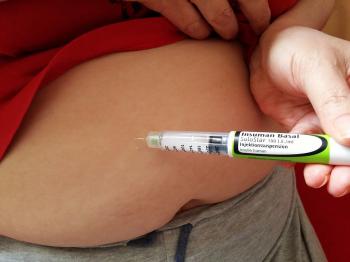Source: Thailand Medical News May 18, 2019 6 years, 8 months, 4 weeks, 1 day, 3 hours, 31 minutes ago
Diabetes affects about 442 million people worldwide (2019) and the figures keep rising with Thailand alone having more than 4.7 million people with diabetes.

Diabetes is the result when a person’s body is not able to produce enough insulin naturally (type 1 diabetes) or when the insulin produced is not efficiently used in the body (type 2 diabetes). Insulin is produced in the pancreas and helps regulate glucose that is obtained from the food sources we eat. Glucose is necessary for energy production in the body and for varied cellular functions but excess causes a multitude of cellular and organ complications.
Current protocols for diabetic patients using insulin intakes involves monitoring their sugar levels with glucometers and calculating their insulin doses and also monitoring their diets. But most often, errors do happens and one the often result is an overdose of insulin that dramatically results in a low sugar level in the bloodstream, a condition called
hypoglycemia. Hypoglycemia can result in seizures, coma and in some cases death.
A Group of bioengineers from UCLA have developed a new type of ‘smart insulin’ called
I-insulin, that could help prevent hypoglycemia in people who use the drug to manage diabetes. The drug is is being evaluated for potential clinical trials and, if successful, could revolutionize diabetes care.
I-insulin works by preventing the blood sugar levels from dipping too low. Normally,iInside the body, insulin acts as a "key" to help glucose get into cells from the bloodstream. When insulin attaches to a cell's surface, it activates a protein inside the cell, called glucose transporter, which then makes its way to the cell's surface. This molecule then transports the surrounding glucose from the blood into the cell.
The team from UCLA added an additional molecule to insulin to create the new smart insulin. This added molecule, called a glucose transporter inhibitor, chemically blocks the glucose transporter molecule that has come to the surface. Its presence doesn't block all glucose from entering, nor does it permanently block the transporter molecules. Instead, it's part of a dynamic process that depends on how many inhibitor and glucose molecules are present.
"Our new i-insulin works like a 'smart' key," said the study's principal investigator Zhen Gu, a professor of bioengineering at the UCLA Samueli School of Engineering in an exclusive interview with Thailand Medical News. "The insulin lets glucose get into the cell, but the added inhibitor molecule acts as a regulator, ie it prevents too much or excess from going in when blood sugar is normal. This keeps blood sugar at normal levels and reduces the risk of hypoglycemia."
"This i-insulin can also rapidly respond to high glucose levels," added Jinqiang Wang, the study's co-lead author. "For example, after a meal, when glucose levels climb, the insulin level in the bloodstream also quickly increases, which helps normalize the glucose level."
The new smart insulin was tested on mice with Type 1 diabetes. The i-insulin controlled glucose levels within the normal range for up to 10 hours after a first in
jection. A second injection three hours later extended the protection from hypoglycemia.
"The next step is to further evaluate the long-term biocompatibility of the modified insulin system and to move on to clinical trials," said co-author Dr. John Buse, director of the Diabetes Care Center at the University of North Carolina at Chapel Hill School of Medicine.
The is insulin will change approaches in diabetes management has the potential to be optimized for response times and how long it could last in the body before another dose would be required," Gu said. "And it could be delivered in other methods besides intramuscular injections, such as a skin patch that automatically monitors blood sugar levels, or in pills."
Reference:Jinqiang Wang, Jicheng Yu, Yuqi Zhang, Anna R. Kahkoska, Zejun Wang, Jun Fang, Julian P. Whitelegge, Song Li, John B. Buse, Zhen Gu. Glucose transporter inhibitor-conjugated insulin mitigates hypoglycemia. Proceedings of the National Academy of Sciences, 2019; 201901967 DOI: 10.1073/pnas.1901967116
